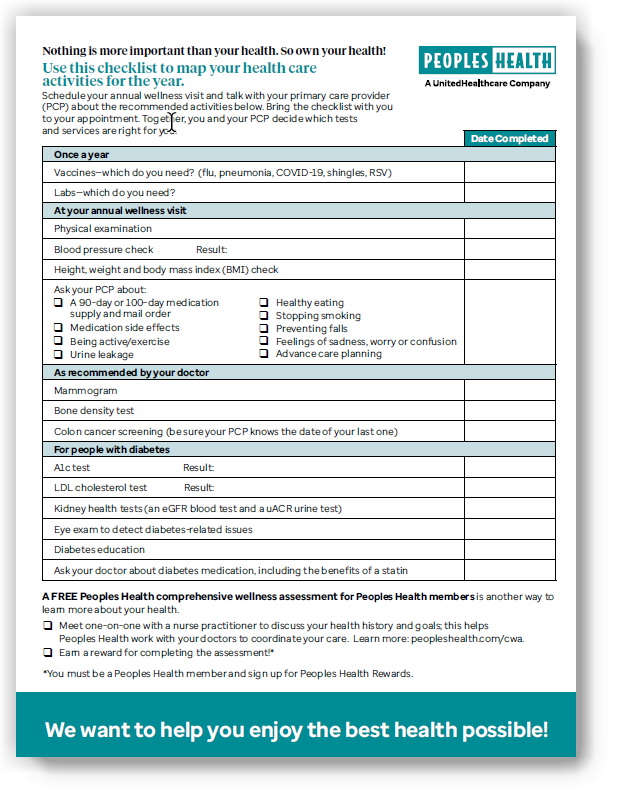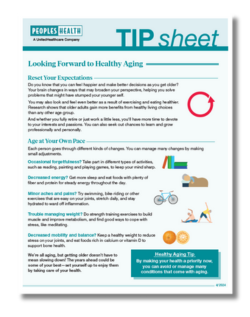Steps to take now
While planning for your health care for the year, you may want to think about planning for future care, too. Making decisions about medical care is not easy, even when we’re healthy. We often take for granted that when difficult decisions will have to be made about our future health care, we’ll be able to make those decisions ourselves. But at some point, you may become unable to make your own health care decisions.
That’s why it’s important to think and talk about your wishes and beliefs—long before critical decisions must be made.
- During a regular visit or your annual wellness visit, talk with your doctor about your wishes for the types of health care you want.
- Do this every year, because your wishes could change.
- Tell your family about your wishes.
- Make it official—write down your wishes in an advance directive.
Getting started
You may be thinking of an advance directive or you may already have one. But just having an advance directive does not ensure that your wishes will be understood and respected.
Advance care planning is the process of understanding, discussing and planning for a time when you cannot make your own medical decisions. This typically involves learning about
treatment options, thinking about your own wishes and values, talking about your decisions with your loved ones and your doctor, and documenting your wishes.
These steps help those closest to you and your doctor understand and provide the type of medical care you prefer when you cannot make your own decisions.
If you already have an advance directive, an annual review of your wishes could be helpful to make sure they haven’t changed. It’s natural that this may happen as you go through health or life changes.
Two main types of advance directives (written instructions):
Visit http://www.peopleshealth.com/advancecareplanning for resources.









